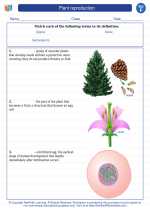Disease
A disease is a condition that impairs the normal functioning of an organism. It can be caused by a variety of factors including pathogens such as bacteria, viruses, fungi, and parasites, as well as non-infectious factors such as genetic mutations, environmental toxins, and lifestyle choices.
Types of Diseases
Diseases can be classified into different types based on their causes and effects on the body:
- Infectious Diseases: These are caused by pathogens and can be spread from one person to another. Examples include the flu, tuberculosis, and HIV/AIDS.
- Non-Infectious Diseases: These are not caused by pathogens and are typically the result of genetic, environmental, or lifestyle factors. Examples include diabetes, cancer, and cardiovascular diseases.
- Autoimmune Diseases: These occur when the immune system mistakenly attacks the body's own cells, leading to conditions such as rheumatoid arthritis and lupus.
- Genetic Diseases: These are caused by abnormalities in an individual's genetic makeup and can be inherited from parents. Examples include cystic fibrosis, sickle cell anemia, and Huntington's disease.
Causes of Diseases
Diseases can have a variety of causes, including:
- Pathogens: Bacteria, viruses, fungi, and parasites can invade the body and cause infectious diseases.
- Genetic Factors: Inherited genetic mutations can lead to genetic diseases.
- Environmental Factors: Exposure to toxins, pollutants, and other environmental factors can contribute to the development of diseases.
- Lifestyle Choices: Poor diet, lack of exercise, smoking, and excessive alcohol consumption can increase the risk of developing certain diseases.
- Autoimmune Reactions: Malfunction of the immune system can lead to autoimmune diseases.
Preventing and Treating Diseases
Preventive measures and treatments for diseases include:
- Vaccines: Vaccination can help prevent the spread of infectious diseases.
- Hygiene Practices: Regular handwashing and proper hygiene can reduce the risk of contracting infectious diseases.
- Healthy Lifestyle: Eating a balanced diet, engaging in regular physical activity, and avoiding harmful substances can help prevent non-infectious diseases.
- Medications: Pharmaceutical drugs and other medical treatments can help manage and treat various diseases.
- Surgery: Surgical procedures may be necessary for the treatment of certain diseases, such as cancer and cardiovascular conditions.
Study Guide
To study the topic of disease, you should focus on the following key points:
- Definition of disease and its impact on the body
- Classification of diseases based on causes
- Common examples of infectious and non-infectious diseases
- Causes of diseases, including pathogens, genetic factors, environmental factors, and lifestyle choices
- Preventive measures and treatments for diseases
Additionally, you can explore case studies of specific diseases and their impact on individuals and communities, as well as the latest research and developments in the field of disease prevention and treatment.
[Disease] Related Worksheets and Study Guides:
.◂Science Worksheets and Study Guides Sixth Grade. Plant reproduction
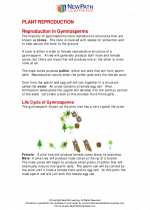
 Activity Lesson
Activity Lesson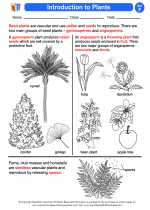
 Worksheet/Answer key
Worksheet/Answer key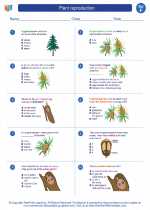
 Worksheet/Answer key
Worksheet/Answer key
 Worksheet/Answer key
Worksheet/Answer key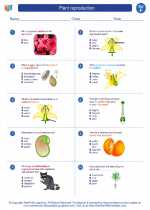
 Vocabulary/Answer key
Vocabulary/Answer key